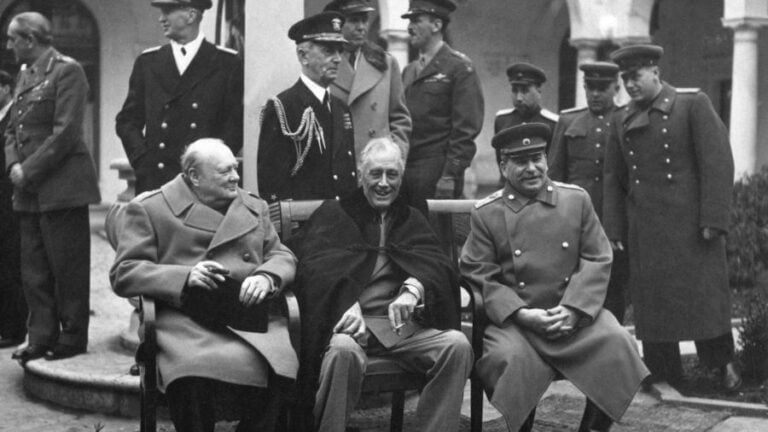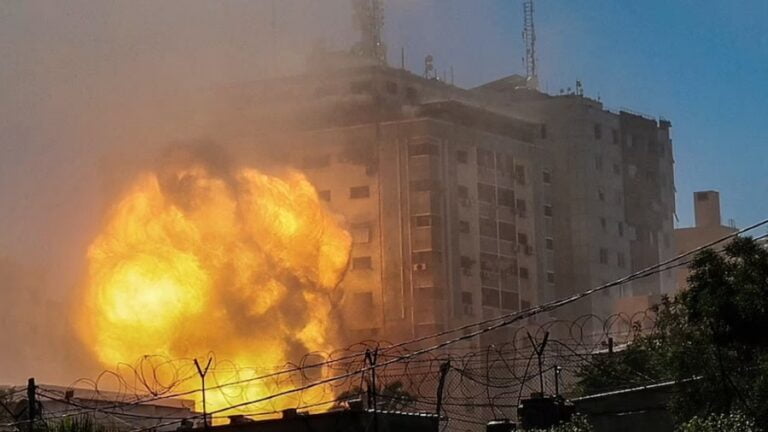Russia Strengthens Cooperation with Its Allies in the East
The start of the special operation to denazify the Kiev regime was essentially a dividing line, revealing not only the true Russophobic attitude towards Russia of the current US political elite and their Western allies, but also clearly highlighting the outspoken defenders and sponsors of today’s neo-Nazis. These circumstances have defined and deepened the sharp breakdown in relations between Europe and Russia, causing Moscow to accelerate a “pivot to the East”, which in the new circumstances helps it to sustain the economy and offset the damage of unlawful Western sanctions.
Under these circumstances, Russia has carried out a serious reorientation of its foreign policy, and its military, trade and economic relations. At the same time, relations with countries that, like Russia, are committed to a multipolar world, moving away from Washington’s attempts to impose a global leadership and to use all means, including such unscrupulous ones as sanctions, to gain privileges for the United States in a competitive international race, have been particularly developed.
In this respect, Russia, as the acknowledged leader in many natural resource endowments, above all in the field of energy, has focused on creating regional and global hubs in its bordering friendly countries to supply foreign markets with raw materials extracted in Russia and the products manufactured in this country. So that these hubs, rather than the speculators of the Western financial and political elite, could influence world prices for commodities, especially those needed by the developing and poorest countries of the world.
Against the backdrop of the apparent sluggishness of the international trading system, due to the fault of the US, the security of energy supplies becomes a global problem that requires an adequate response, including for the “manufacturing colossus”, China. The Chinese energy market is known to be a tidbit for all oil-producing countries and, according to analysts from the International Energy Agency (IEA), China, along with India, will remain the main driver of growth in demand for black gold and gas at least until the mid-2030s.
In this context, cooperation between Moscow and Beijing in the field of energy resources has acquired a special strategic character in the recent period. In particular, the Power of Siberia gas pipeline was launched, which has not only strengthened China’s energy security, but also diversified markets for Russian natural gas. The Power of Siberia gas pipeline project, as well as the Yamal LNG arctic project, contribute to political, economic and technological cooperation between Russia and China. Both states have an interest in their successful implementation: Russia secures new promising markets for its natural resources and the development of the corresponding infrastructure, while China gains a reliable and stable supplier of hydrocarbons, improves the environmental situation in the country, and promotes the development of gas-chemical production and related technologies. Another major joint oil and gas project in the PRC is the construction of the Tianjin refinery.
The increase in supplies, not only of gas but also of oil under contracts between Russia and China, is also due to the commissioning of new fields and the planned expansion of pipeline infrastructure. China-Russia cooperation on oil trade is in line with the current realities and energy development strategies of the two countries. It is not just about economics and finance, it is about supporting a friendly China in the face of modern challenges from the West. These steps of bilateral cooperation between Russia and China could ultimately turn China into a major hub for Russian energy in the near future.
Russia’s cooperation with Iran has been growing rapidly of late, particularly in the military, industrial, commercial and energy sectors. And in this respect, Russia’s intention to create an “electricity hub” in Iran, with the prospect of connecting Armenia and Azerbaijan to it and then re-exporting Russian electricity to other countries through it, is particularly noteworthy. Both countries are keen to see this project implemented as soon as possible, as it will, among other things, support Iran’s own economy in the absence of sufficient funds to reform its own energy sector, which needs to build at least three new power plants.
The multifaceted cooperation between Russia and Turkey has been actively developing in recent years. This cooperation has been very fruitful lately in the gas sector. Two strings of Turkish Stream with a capacity of more than 32 billion cubic meters have already been commissioned – one to Turkey and the other to Europe. In October, Russian President Vladimir Putin put forward an initiative to lay additional gas pipelines from Russia to Turkey, which would create a gas hub on the EU border. If such a gas hub is established in Turkey, it could certainly become a competitive alternative to other gas pricing centers for Europe. In this connection, it is not surprising that the Turkish leader Erdoğan willingly supported Vladimir Putin’s proposal and has already announced the possibility of locating such a gas hub in the European part of the country, in Thrace.
As is known, Turkey now gets its gas mainly from Russia, Iran and Azerbaijan. In addition to using the gas coming from outside for its own needs, Turkey is also an important transit hub, as a significant part of the gas flows through Turkey to Europe via seven export pipelines. In addition to pipeline gas, Turkey also receives LNG, with two LNG terminals, two floating LNG storage and regasification facilities and two underground gas storage facilities. With its recent emphasis on the gas sector and its intention to ensure the country’s energy security from external sources, Turkey has accelerated work on producing gas from its own Sakarya field in the Black Sea, where 9 wells have already been drilled.
According to a report by Turkey’s Energy Market Regulatory Authority, Russia supplied 44.9% of the country’s total gas imports – or 26.3 billion cubic meters – to Turkey in 2021. In the case of a gas hub in Turkey, Russian gas mixed with Azerbaijani or Iranian gas would already be “Turkish”, without causing political Russophobic allergies among potential European buyers. As for the benefits for Turkey, Turkish officials, and indeed the head of state, are already asserting their right to determine the selling prices of gas supplies in discussions on the subject. And with the “gas keys” at its disposal in this case, Turkey is clearly counting on a more pliable European position when Ankara discusses any issues of interest with Brussels in the future.
However, in addition to being a “gas hub”, Turkey could also become a “grain hub”, again at the instigation of Moscow. Having seized upon President Putin’s proposal to supply grain to developing countries free of charge, the Turkish leader has already followed up on the idea by proposing to receive Russian wheat, process it into flour and only then send it to the countries in need. R.T. Erdoğan has already discussed the idea with UN Secretary-General António Guterres.
Thus, the establishment by Russia of various kinds of hubs in its neighboring friendly states for the supply of Russian energy and manufactured products to the foreign market will not only contribute to the economic development of these countries, but it will also destroy the misuse of sanctions policies by the US and its Western allies against states unwilling to submit to US diktat. And it will also be an important stage in the destruction of US hegemony and Washington’s attempts to maintain a unipolar world.







